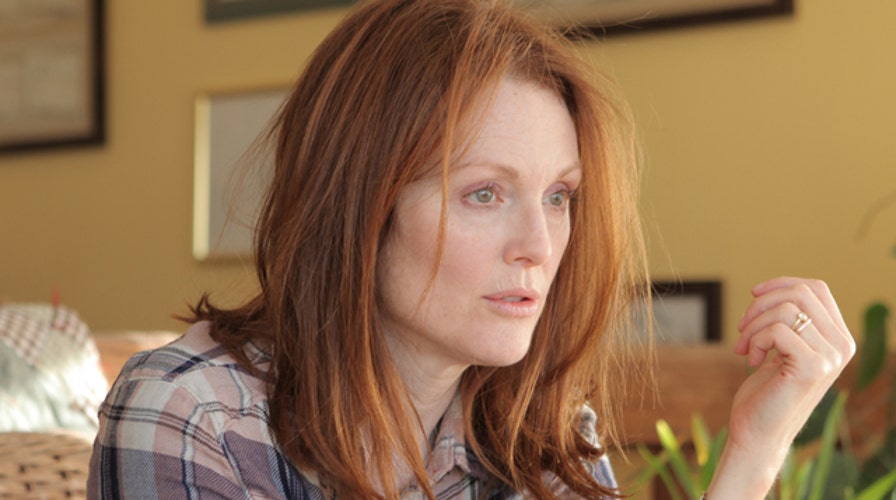Julianne Moore heats up Oscar race with 'Still Alice'
Ashley Dvorkin and Fox 411 movie reviewer Justin Craig discuss Julianne Moore's Oscar-worthy performance in 'Still Alice'
Julianne Moore is sure to heat up the Oscar race for her tender and heartrending performance in “Still Alice.”
Based on the novel by Lisa Genova and directed by Richard Glatzer and Wash Westmoreland (“The Last of Robin Hood”), “Still Alice” follows Alice Howland, a mother of three and linguistics professor at Columbia University, who is diagnosed with early-onset Alzheimer’s disease. Alice, along with her husband John (Alec Baldwin) and children (Kristen Stewart, Kate Bosworth and Hunter Parrish), struggles to cope with her failing health.
Without a doubt this is an Oscar vehicle for Moore, and it is definitely an Oscar-worthy performance. Her regression from the healthy and whip-smart linguistics professor to a frail woman who has lost all her memories - and some of her speech - is at times heart-wrenching and astonishing. It’s Moore’s most noble performance to date.
Glatzner and Westmoreland are to be commended for not oversaturating “Still Alice” with melodrama. It’s a subtle film – perhaps too subtle at times. There are no stereotypical dramatic flourishes, no quests to fulfill a bucket list, no defiant campaign to survive. This is presented relatively close to life: a personal matter among those who can cope and those who cannot.
Even with Moore’s powerful performance and the heavy subject matter, “Still Alice” still feels light in plot. This is a very linear story and doesn’t branch out beyond Alice’s subtle deterioration. Even just a stronger perspective from the family would have significantly elevated this drama but the supporting characters only remain in the periphery. Her husband John is supportive to a degree but internally cannot cope with seeing his wife deteriorate. Her son (Hunter Parrish) and daughter Anna (Kate Bosworth) add barely anything to the story. Just a little more family would have gone a long way here.
Kristen Stewart is Alice’s rebellious daughter Lydia who has fled her family and NYC’s Upper West Side to become a struggling actress in Los Angeles. The story eventually evolves into the strengthening bond between mother and daughter as Alice’s condition worsens. Unfortunately, Stewart is the film’s weakest asset. Her casting limits the film’s potential since Lydia is the second most important character behind Alice. Her reactions to Alice’s condition are stunted and hardly effective. As for playing an actor playing a really "good" actor in the film, Stewart doesn’t quite cut it.
Overall “Still Alice” feels rather incomplete, but the blemishes are overshadowed by some tender and potent moments, a lovely score by Ilan Eshkeri and Julianne Moore’s fantastic performance.
Sony Pictures Classics. MPAA Rating: PG-13. Running time: 1 hour and 39 minutes.







